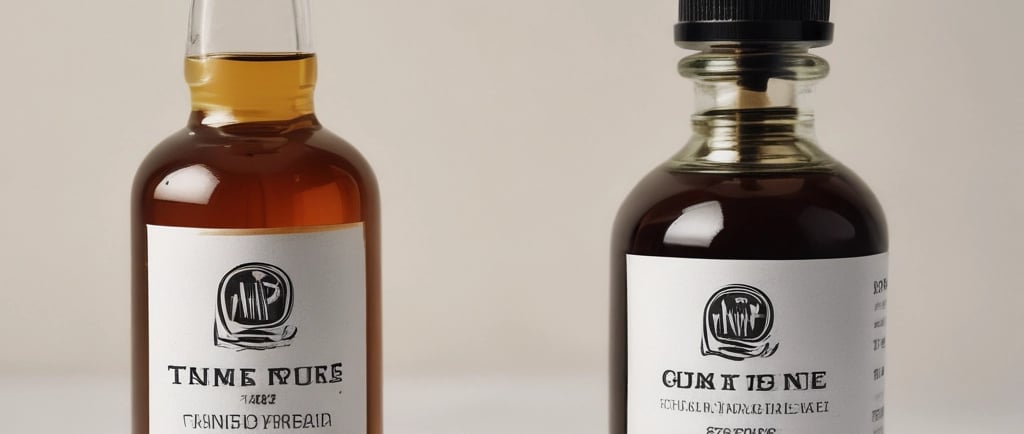Herbal Backer News & Updates: FLASH SALE!!! LIMITED TIME ONLY
Cold Infusions( handmade) vs. Forced Distillation(Commercial brand)
Did you ever wonder what are the true differences of hand made herbal medicinals(cold infused) vs commercial made herbal medicinals(force distilled). AND WHY IT MATTERS SO MUCH...
9/26/20254 min read


Cold Infused Tinctures over Commercially Forced Distilled Tinctures
Introduction
In the world of herbal remedies, tinctures have long been valued for their ability to concentrate the medicinal properties of plants into a potent, easy-to-use liquid form. Traditionally crafted through a patient process of cold infusion, these extracts capture the essence of herbs in a way that honors nature's timeline. However, in today's fast-paced market, many commercial producers opt for forced distillation methods—accelerated techniques involving heat, pressure, or rapid solvent extraction—to meet demand quickly and efficiently. While both approaches yield tinctures, they differ significantly in quality, efficacy, and overall value. This blog post explores the advantages of traditional cold infused tinctures over their commercially forced distilled counterparts, comparing aspects such as potency, pros and cons, costs, short- and long-term benefits, and shelf life. By the end, you'll see why opting for a handmade, cold infused tincture not only supports better health outcomes but also aligns with a more authentic, sustainable approach to wellness.
Understanding the Two Methods
Traditional cold infused tinctures are made by steeping high-quality herbs in a solvent like alcohol or glycerin at room temperature for several weeks or even months. This slow maceration process allows the plant's active compounds to gently dissolve, preserving a broad spectrum of beneficial elements without external interference.
In contrast, commercially forced distilled tinctures often employ heat, distillation, or mechanical forcing (such as percolation or ultrasonic extraction) to speed up the process. These methods are designed for mass production, extracting compounds in hours or days rather than weeks. While efficient for large-scale operations, they can alter the natural composition of the herbs, sometimes prioritizing quantity over quality.
Potency Comparison
Potency refers to the concentration and bioavailability of active compounds in the tincture. Cold infused tinctures excel in delivering a full-spectrum extract, retaining delicate, heat-sensitive constituents like volatile oils, enzymes, and certain alkaloids that contribute to the plant's therapeutic effects. This results in a more balanced and synergistic potency, often described as the "entourage effect," where compounds work together for enhanced efficacy.
Commercially forced distilled tinctures, however, may achieve higher concentrations of specific compounds through aggressive extraction, but at a cost. Heat and pressure can degrade or destroy sensitive molecules, leading to a more isolated or refined product with potentially reduced overall potency. For instance, studies on herbal extractions indicate that cold methods preserve up to 20-30% more bioactive volatiles compared to heated processes. While distilled versions might seem stronger in lab tests for isolated markers, they often lack the holistic power of their cold-infused counterparts.
Pros and Cons of Each
Traditional Cold Infused Tinctures:
Pros:
Preserves a wider range of natural compounds, leading to more comprehensive health benefits.
Artisanal quality ensures purity, with no risk of chemical residues from industrial processes.
Environmentally friendly, requiring minimal energy and equipment.
Customizable for small batches, allowing for personalized formulations.
Cons:
Time-intensive production, which can limit availability.
Slightly lower yield per batch compared to forced methods.
Commercially Forced Distilled Tinctures:
Pros:
Faster production enables lower retail prices and wider distribution.
Consistent standardization, appealing to those seeking uniform dosing.
Higher extraction efficiency for tough plant materials like roots or barks.
Cons:
Potential loss of heat-sensitive nutrients, reducing overall therapeutic value.
Risk of over-processing, which may introduce unwanted byproducts or alter flavors unpleasantly.
Less sustainable due to energy consumption and reliance on large-scale machinery.
Costs
From a consumer perspective, traditional cold infused tinctures may carry a higher upfront price—often 20-50% more than commercial options—due to the labor-intensive, small-batch craftsmanship involved. However, this cost reflects superior quality and ethical sourcing, making it a worthwhile investment for discerning users.
Commercially forced distilled tinctures are typically more affordable, benefiting from economies of scale and rapid turnaround. Production costs are lower per unit, but hidden expenses arise in the form of potentially reduced efficacy, meaning users might need higher doses or more frequent purchases to achieve similar results. Over time, the premium on handmade cold infused products pays off through better value and fewer replacements.
Short-Term and Long-Term Benefits
Short-Term Benefits: Both types offer quick absorption when taken sublingually, providing rapid relief for issues like stress, pain, or digestion. Cold infused tinctures shine here with their natural flavor profiles and immediate bioavailability of full-spectrum compounds, often leading to noticeable effects within 15-30 minutes without the harshness sometimes associated with distilled versions.
Commercially forced distilled tinctures may deliver a more intense initial hit due to concentrated isolates, but this can come with side effects like bitterness or digestive upset from altered compounds.
Long-Term Benefits: The true edge of cold infused tinctures lies in sustained use. Their preservation of synergistic plant elements supports cumulative benefits, such as improved immune function, better sleep patterns, or enhanced vitality over months or years. Users often report fewer tolerances building up, thanks to the varied compound profile.
Forced distilled tinctures, while effective short-term, may fall short long-term due to missing cofactors, potentially leading to diminished returns or the need for supplementation. Additionally, the natural antioxidants in cold infusions contribute to overall wellness, reducing oxidative stress in ways that refined products cannot match.
Shelf Life
Alcohol-based tinctures from both methods boast impressive longevity, typically lasting 3-5 years when stored in cool, dark conditions. However, cold infused versions often edge out with even greater stability, as the gentle extraction avoids degrading compounds that could accelerate spoilage. Glycerin-based cold infusions last 1-2 years, still outpacing many commercial alternatives.
Forced distilled tinctures maintain similar shelf lives but may require preservatives in some cases, especially if heat has compromised natural stabilizers. Proper storage is key for both, but the handmade purity of cold infusions minimizes risks of contamination.
Additional Considerations for Superior Quality
Beyond the basics, traditional cold infused tinctures offer intangible benefits that elevate them as a premium choice. Handmade by skilled herbalists, they embody a connection to nature and tradition, often using organically sourced, wildcrafted ingredients free from pesticides. This not only enhances safety but also supports local economies and sustainable harvesting practices. For those seeking authenticity, the subtle nuances in flavor and aroma—reminiscent of the fresh herb—make each dose a sensory experience. In an era of mass-produced wellness products, choosing cold infused tinctures is a statement of self-care, prioritizing holistic healing over convenience.
Conclusion
When weighing traditional cold infused tinctures against commercially forced distilled ones, the former emerges as the superior option for those committed to genuine, effective herbal medicine. With preserved potency, broader benefits, and a nod to artisanal excellence, cold infusions deliver not just remedies but a deeper alignment with natural wellness. While commercial alternatives may suit budget-conscious or time-pressed consumers, the long-term value and purity of handmade cold infused tinctures make them an investment in your health. Ready to experience the difference? Explore our selection of traditionally crafted, cold infused tinctures today—crafted with care to unlock nature's full potential for you.
